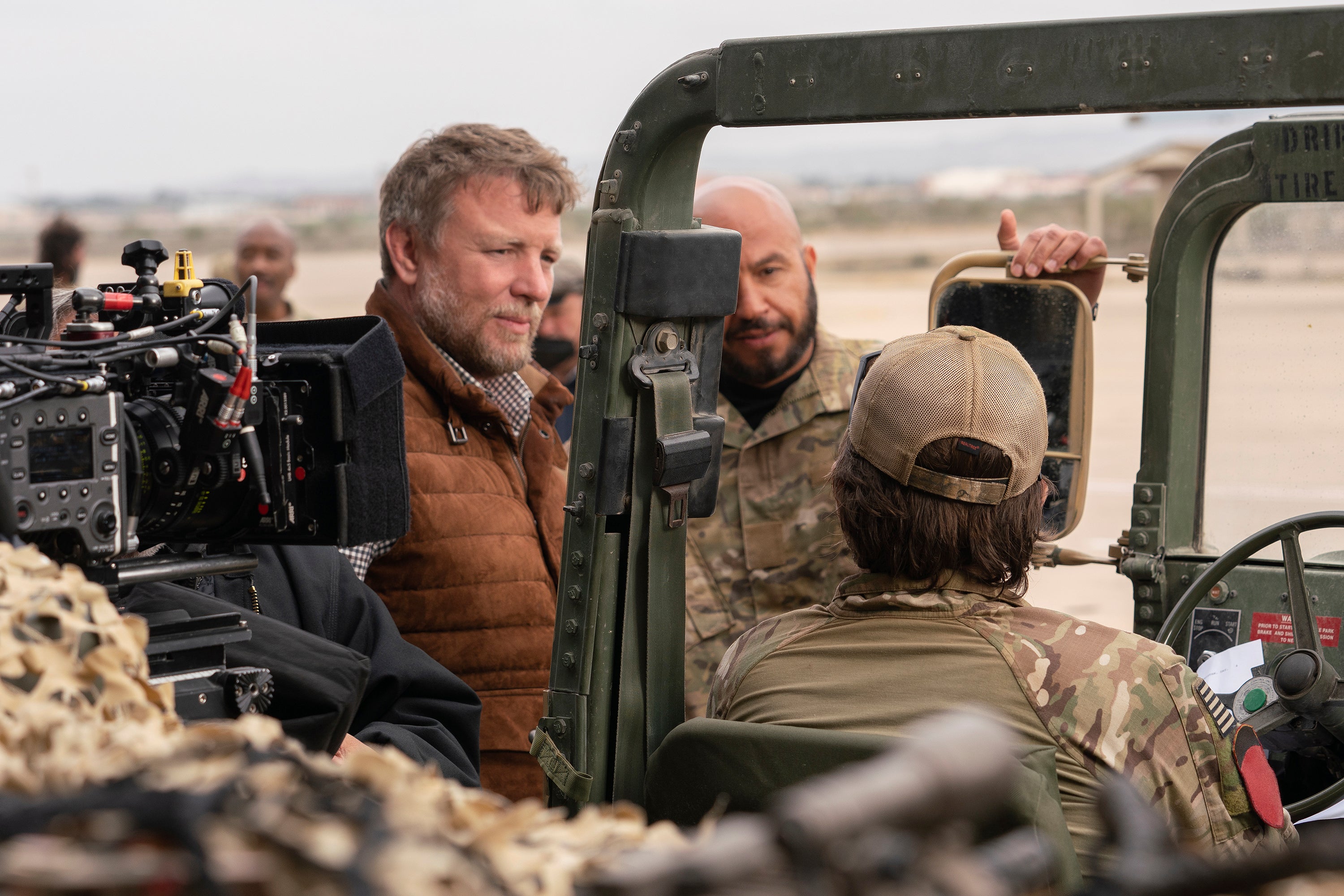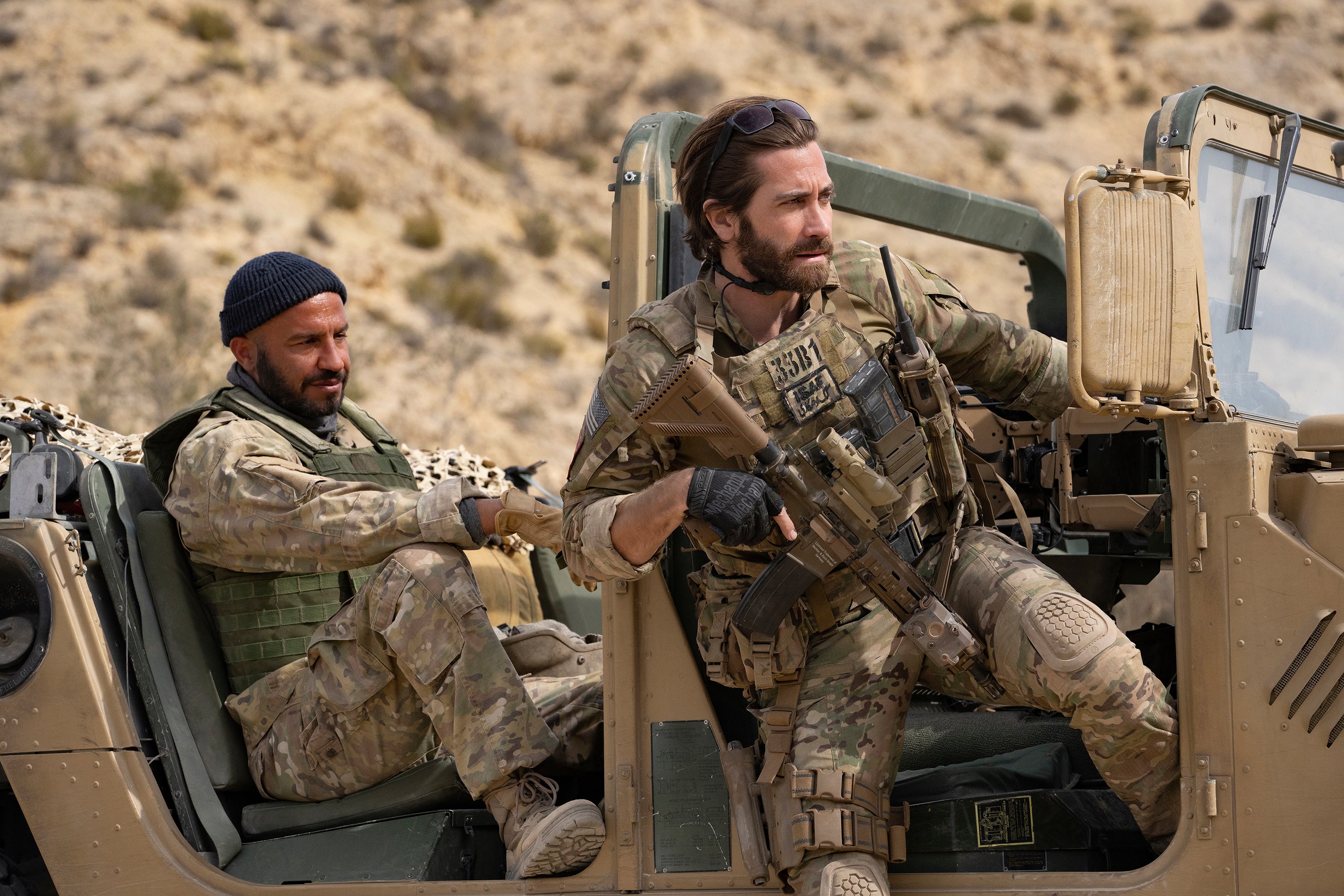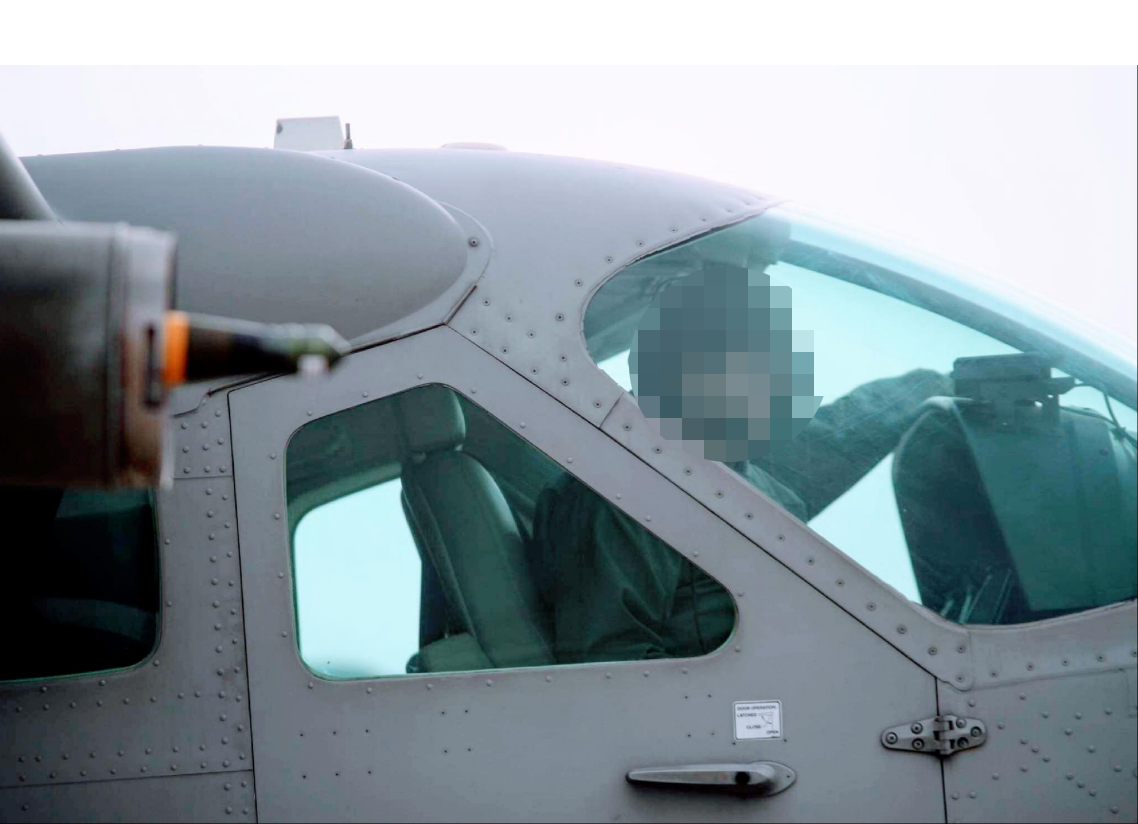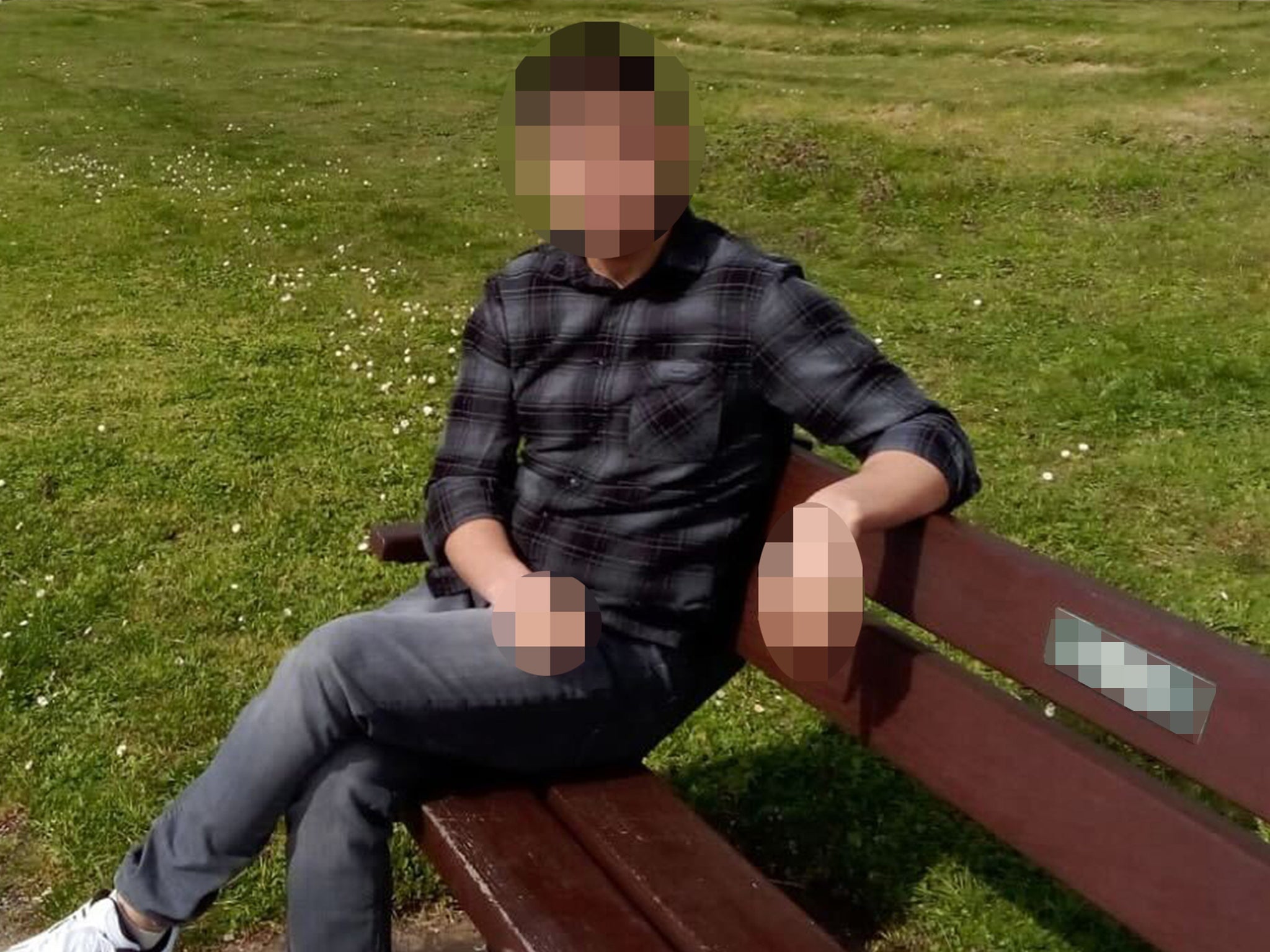Guy Ritchie: ‘Morally reprehensible’ to deport Afghan heroes who fought alongside British forces
The Hollywood director’s new film ‘The Covenant’ echoes The Independent’s campaign on the plight of the Afghan pilot who served alongside coalition forces against the Taliban
Your support helps us to tell the story
From reproductive rights to climate change to Big Tech, The Independent is on the ground when the story is developing. Whether it's investigating the financials of Elon Musk's pro-Trump PAC or producing our latest documentary, 'The A Word', which shines a light on the American women fighting for reproductive rights, we know how important it is to parse out the facts from the messaging.
At such a critical moment in US history, we need reporters on the ground. Your donation allows us to keep sending journalists to speak to both sides of the story.
The Independent is trusted by Americans across the entire political spectrum. And unlike many other quality news outlets, we choose not to lock Americans out of our reporting and analysis with paywalls. We believe quality journalism should be available to everyone, paid for by those who can afford it.
Your support makes all the difference.Hollywood director Guy Ritchie says it is “morally reprehensible” that Afghans who supported British and Nato troops in Afghanistan are being blocked from coming to the UK.
He is adding his support to The Independent’s campaign to prevent an Afghan pilot who served alongside the British and US against the Taliban from being sent to Rwanda.
In the last six weeks, three generals including the former head of the army, the former head of the navy, the leader of the opposition Keir Starmer and former Tory leader Iain Duncan Smith have all called for intervention to stop the deportation.
Ritchie, whose new filmThe Covenant echoes the campaign and tells the story of an Afghan interpreter left behind by US forces to face the Taliban, said those who worked alongside coalition troops only did so because they thought they’d be looked after.
The dramatic blockbuster centres around whether a visa will be granted to save the Afghan hero from being assassinated by the Taliban. The pilot is similarly waiting to hear his fate after arriving in Britain by boat because there was no safe and legal route.
Sign The Independent’s petition calling for the UK to support Afghan war heroes who served alongside Britain.
Ritchie, one of the most successful British directors in Hollywood, is shocked that the British government should fail to keep its commitment to those who helped fight against the Taliban.
His film is precisely about that commitment to honour a pledge to safeguard those who fought in the war in Afghanistan.

It is a rare intervention for Ritchie, but the moral case of a hero being left abandoned by the government moved him to add his voice to The Independent’s campaign.
He says: “During the course of the Afghanistan conflict, thousands of local Afghans exposed themselves to significant risk by supporting British, American and other Nato forces.
“Some worked as interpreters, while others fought alongside these forces. They did this based on an understanding that they would be offered visas and protection – and this promise must be honoured.
“It is morally reprehensible that those who worked loyally for us and alongside us have found their safe passage to a future has been blocked”.
Ritchie’s film, which opened in the US to critical acclaim and is released in the UK in June, tells the story of a US Army sergeant, played by Jake Gyllenhaal, whose life is saved by his Afghan interpreter, played by Dar Salim, in 2018, before the Taliban returned to power.
After the sergeant returns home, he discovers the interpreter and his family are being hunted by the Taliban because of their role in supporting American troops.
When the US authorities say they cannot help bring the interpreter to safety, Gyllenhaal’s character then returns to Afghanistan on a mission to save him.

Ritchie co-wrote the script after being inspired by several documentaries in which he became fascinated with the relationship between soldier and interpreter.
It was his first project with Gyllenhaal, who revealed he was brought to tears when he saw the final film. “I was so moved by it because I think it moved beyond the experience we had. In the end, it is a story about humanity,” he said. “It’s a story about the action of good and the action of good not always having to be sentimentalised.”
The Afghan pilot now facing deportation flew more than 30 missions against terrorist threats. The Independent was told by his US coalition supervisor that the airman was a “patriot to his nation”.
He came to Britain by boat having been forced to flee the Taliban after going into hiding, leaving his wife and young family living in danger in Afghanistan. He felt he had no option but to come to the UK for safe haven. Finding no safe and legal route, and believing he had been “forgotten” by the coalition, he made the long journey to the UK on his own.
Ritchie joins 30 military chiefs, diplomats, celebrities and politicians in backing The Independent’s campaign. The Royal British Legion, which represents tens of thousands of armed forces personnel, has also urged Britain to “honour its commitment” to help Afghan war heroes who worked with the British.
The pilot has written a letter to Rishi Sunak, which has been stonewalled. Ben Wallace, the defence secretary, has all the details of the case and has so far done nothing.
A military source said: “Does this government really want to see this hero frogmarched onto a plane to Rwanda having risked his life?”

Mr Duncan Smith said he was shocked by the lack of compassion shown by the government, saying: “With all schemes, there needs to be flexibility. We have established [a] safe route with the [Arap] Afghan scheme, so it shouldn’t take too much to move him across to the scheme.”
In the UK, the government has two schemes for Afghans wanting to come to the UK. The first, run by the Ministry of Defence, is specifically for those who were employed by the British forces and who are facing an imminent risk of threat to life.
The Afghan Relocation and Assistance Policy scheme (Arap) has processed 22,345 applications, while just 3,399 cases – plus their families – have been found eligible.
Afghans who directly worked for the British Army as part of their labour support unit, in roles such as mechanics, have been repeatedly rejected from the resettlement scheme.
The other more general scheme, run by the Home Office, is not open for applications. Afghans have to be referred for UK resettlement by the UNHCR but so far only 22 people have come to the UK this way.
Dr Sara de Jong, co-founder of charity The Sulha Alliance, which campaigns for Afghan interpreters, said: “We currently see that too many Afghans who enabled the UK mission are still waiting for a decision, are unfairly excluded while at risk, or are left in limbo in third countries.
“Interpreters who risked their lives to protect British forces, are left unprotected by the British government.”

The government’s Illegal Migration Bill, which is being debated in the House of Lords, would detain and deport anyone who arrived in the UK on a small boat.
Former head of the British Army General Sir Richard Dannatt has said that the case of the Afghan pilot shows the failings of the bill’s blanket approach to migrants.
He described the bill as “vicious” and said that “it runs the risk of offending Britain’s standing in the world”.
His comments echo those of the Archbishop of Canterbury who has urged the government to reconsider the bill. Describing the bill, he told the Lords: “It is isolationist, it is morally unacceptable and politically impractical to let the poorest countries deal with the [refugee] crisis alone.”
An MoD spokeperson said: “We owe a debt of gratitude to those interpreters and other staff eligible under the Arap scheme who worked for, or with, UK forces in Afghanistan. That’s why we have committed to relocating all eligible Afghans and their families to the UK under the Arap scheme – a commitment we will honour.
“Our absolute priority is supporting the movement of eligible people out of Afghanistan and to date, we have relocated over 12,200 individuals to the UK under Arap”.




Join our commenting forum
Join thought-provoking conversations, follow other Independent readers and see their replies
Comments